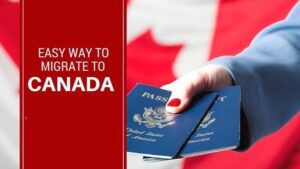Understanding Visa Sponsorship
Visa sponsorship involves a U.S.-based individual or entity committing to support a foreign national’s application for a visa or green card. This commitment includes providing necessary documentation to U.S. immigration authorities and ensuring the applicant adheres to immigration laws and regulations.
Various visa categories require sponsorship, including employment-based, family-based, and certain temporary work visas. Each category has specific requirements and processes.
Family-Based Sponsorship
Eligibility Criteria
U.S. citizens and lawful permanent residents (green card holders) can sponsor certain family members for immigration to the U.S. The family-based sponsorship is divided into two main categories:
1. Immediate Relatives: This category includes:
- Spouses of U.S. citizens
- Unmarried children under the age of 21 years of U.S. citizens
- Parents of U.S. citizens (if the sponsoring citizen is at least 21 years old) Immediate relatives benefit from the absence of annual numerical limits, allowing for a generally faster immigration process.
2. Family Preference Categories: These are subject to annual numerical limits, which can lead to longer wait times. The categories include:
- F1: Unmarried sons and daughters (21 years and above) of U.S. citizens
- F2A: Spouses and unmarried children (under 21 years) of lawful permanent residents
- F2B: Unmarried sons and daughters (21 years and above) of lawful permanent residents
- F3: Married sons and daughters of U.S. citizens.
- F4: Brothers and sisters of U.S. citizens (if the sponsoring citizen is at least 21 years old)
Sponsorship Process
The sponsoring relative must file a petition, typically Form I-130 (Petition for Foreign Relative), to establish their relationship. Additionally, they must submit Form I-864 (Affidavit of Support) to demonstrate financial ability to support the immigrant. Once approved, the beneficiary can apply for an immigrant visa or adjust their status if already in the U.S.
Employment-Based Sponsorship
Eligibility Criteria
U.S. employers can sponsor foreign nationals for employment-based visas or green cards. The employer must demonstrate that there are no qualified U.S. workers available for the position and that hiring the foreign worker will not adversely affect the wages and working conditions of U.S. workers.
Sponsorship Process
The process generally involves:
- Labor Certification: The employer must obtain and present a labor certification from the U.S. Department of Labor, confirming the unavailability of qualified U.S. workers for the position.
- Petition Filing: The employer files Form I-140 (Immigrant Petition for Alien Worker) with U.S. Citizenship and Immigration Services (USCIS).
- Visa Application: Once the petition is approved, the foreign worker can apply for an immigrant visa at a U.S. consulate or adjust status if already in the U.S.
Financial Sponsorship (Humanitarian Programs)
In certain humanitarian programs, individuals or organizations can provide financial sponsorship for foreign nationals. This involves committing to support the applicant financially to ensure they do not become a public charge. Financial sponsorship is common in programs like humanitarian parole, where the sponsor must demonstrate the ability to support the beneficiary during their stay in the U.S.
Exploring U.S. Work Visa Options
The United States offers a variety of work visas for foreign nationals seeking employment opportunities. These visas are categorized based on the nature and duration of employment, ranging from temporary assignments to permanent positions. Understanding the different types of work visas is crucial for individuals and employers navigating the U.S. immigration system.
Temporary Non-Immigrant Work Visas
Temporary work visas are designed for individuals intending to work in the U.S. for a specific period. These visas typically require a job offer from a U.S. employer and approval from the U.S. Citizenship and Immigration Services (USCIS).
H Visas
- H-1B Visa: For professionals in specialty occupations requiring theoretical or technical expertise. Applicants must possess at least a bachelor’s degree or equivalent experience. Employers must demonstrate the unavailability of qualified U.S. workers for the position.
- H-2A Visa: For temporary agricultural workers. Employers must show a shortage of U.S. workers and that hiring foreign labor will not adversely affect domestic workers’ wages and conditions.
- H-2B Visa: For temporary non-agricultural workers in sectors like hospitality, construction, and landscaping. Similar to H-2A, employers must prove the necessity of foreign labor.
- H-3 Visa: For individuals seeking training in fields other than graduate medical education. The training must not be available in the applicant’s home country.
I Visa
- I Visa: For representatives of foreign media, including journalists and film crews, who are traveling to the U.S. for work purposes.
L Visas
- L-1A Visa: For executives or managers transferring within the same company to a U.S. office.
- L-1B Visa: For employees with specialized knowledge transferring to a U.S. branch of their company.
O Visa
- O-1 Visa: For individuals with extraordinary ability or achievement in fields like science, arts, education, business, or athletics.
P Visas
- P-1 Visa: For internationally recognized athletes or entertainment groups.
- P-2 Visa: For artists or entertainers performing under a reciprocal exchange program.
- P-3 Visa: For artists or entertainers participating in culturally unique programs.
R Visa
- R-1 Visa: For religious workers employed by a non-profit religious organization in the U.S.
Permanent (Immigrant) Work Visas
Permanent work visas, also known as employment-based green cards, allow foreign nationals to live and work in the U.S. indefinitely. These visas are divided into several preference categories:
- EB-1: For individuals with extraordinary abilities, outstanding professors or researchers, and multinational executives.
- EB-2: For professionals with advanced degrees or exceptional abilities in arts, sciences, or business.
- EB-3: For skilled workers, professionals, and other workers with at least two years of experience or training.
- EB-4: For special immigrants, including religious workers and certain international organization employees.
- EB-5: For investors who invest a significant amount of capital in a U.S. business that creates jobs for American workers.
Student and Exchange Visitor Visas
While primarily for educational purposes, these visas allow limited work opportunities under specific conditions.
- F-1 Visa: For academic students enrolled in accredited institutions. Allows for on-campus employment and optional practical training (OPT) related to the field of study.
- M-1 Visa: For vocational or non-academic students. Employment opportunities are limited and must be authorized.
- J-1 Visa: For exchange visitors participating in programs promoting cultural exchange. Includes options for work and training in fields like teaching, research, and medical training.
Temporary Business Visitor Visa
- B-1 Visa: For individuals traveling to the U.S. for short-term business activities, such as attending conferences, negotiating contracts, or consulting with business associates. Employment is not permitted under this visa.
For a comprehensive understanding of U.S. work visas and assistance with the application process, consider exploring resources provided by immigration experts and official government websites.
Disclaimer: This information is intended for general guidance and may not reflect the most current legal developments. For personalized advice, consult with an immigration attorney or official government resources.
Frequently Asked Questions
Can a private individual sponsor an immigrant?
Yes, private individuals can sponsor immigrants, primarily through family-based immigration or by providing financial support in humanitarian cases. The sponsor must meet a required income requirements and commit to supporting the immigrant financially.
What are the responsibilities of a sponsor?
Sponsors are responsible for providing financial support to the immigrant, ensuring they do not become a public charge. This includes submitting the necessary forms and documentation and may involve a legal commitment to support the immigrant for a specified period.
Is visa sponsorship a guarantee of approval?
No, while visa sponsorship is a critical component, it does not guarantee visa approval. The applicant must still meet all eligibility requirements, and the application is subject to review and approval by U.S. immigration authorities.

